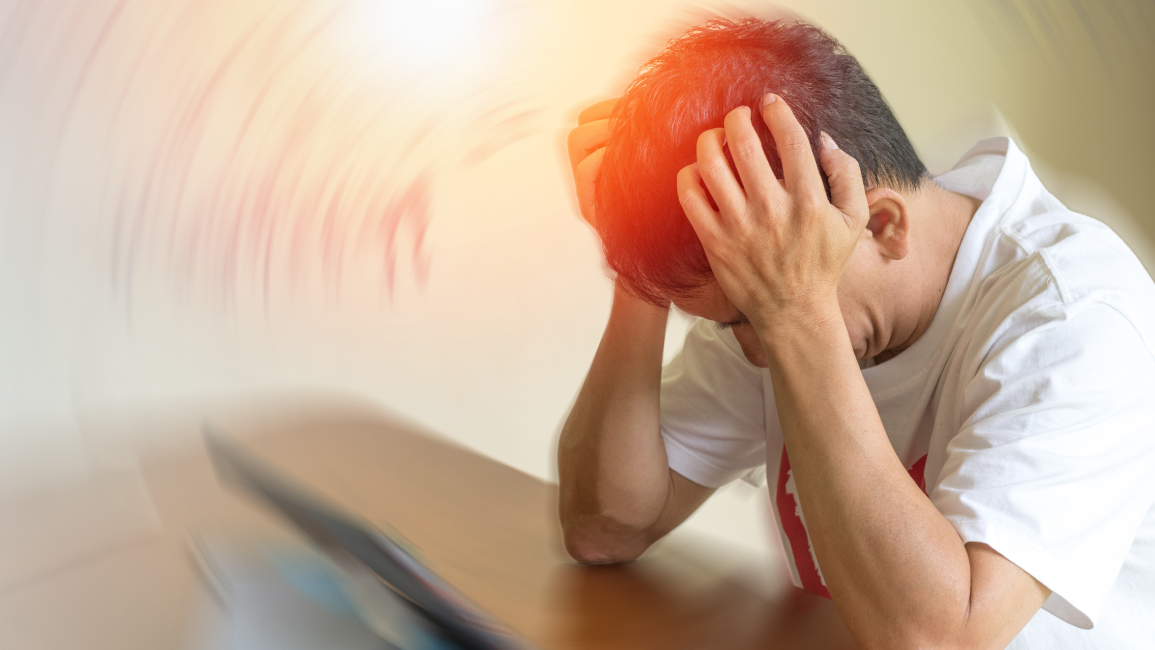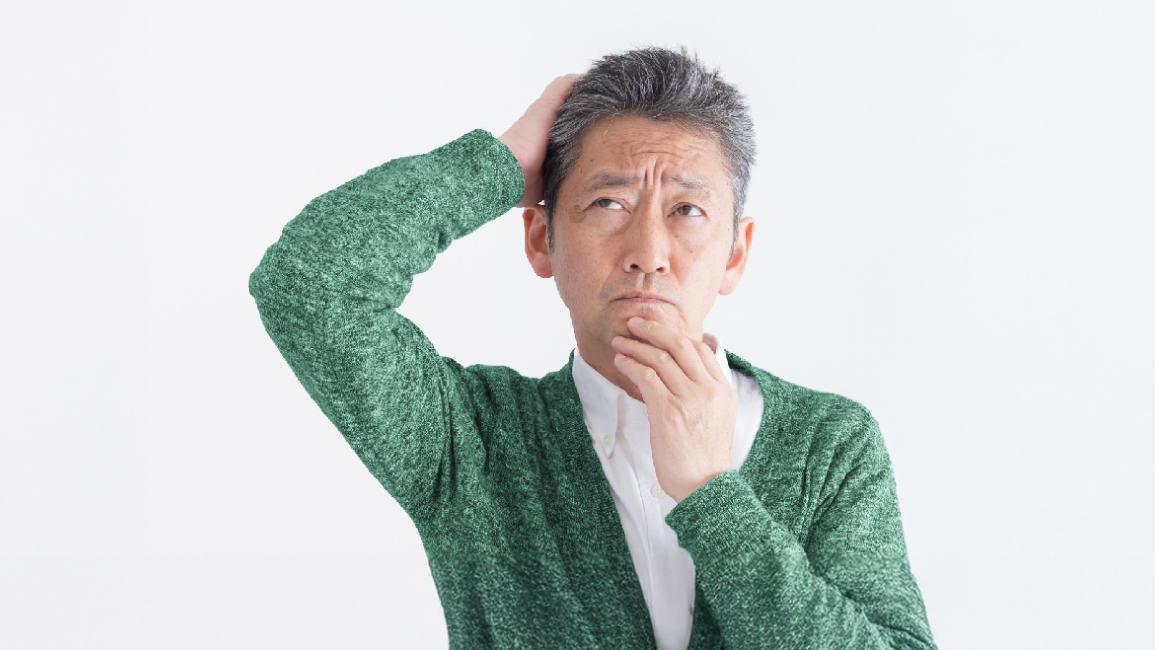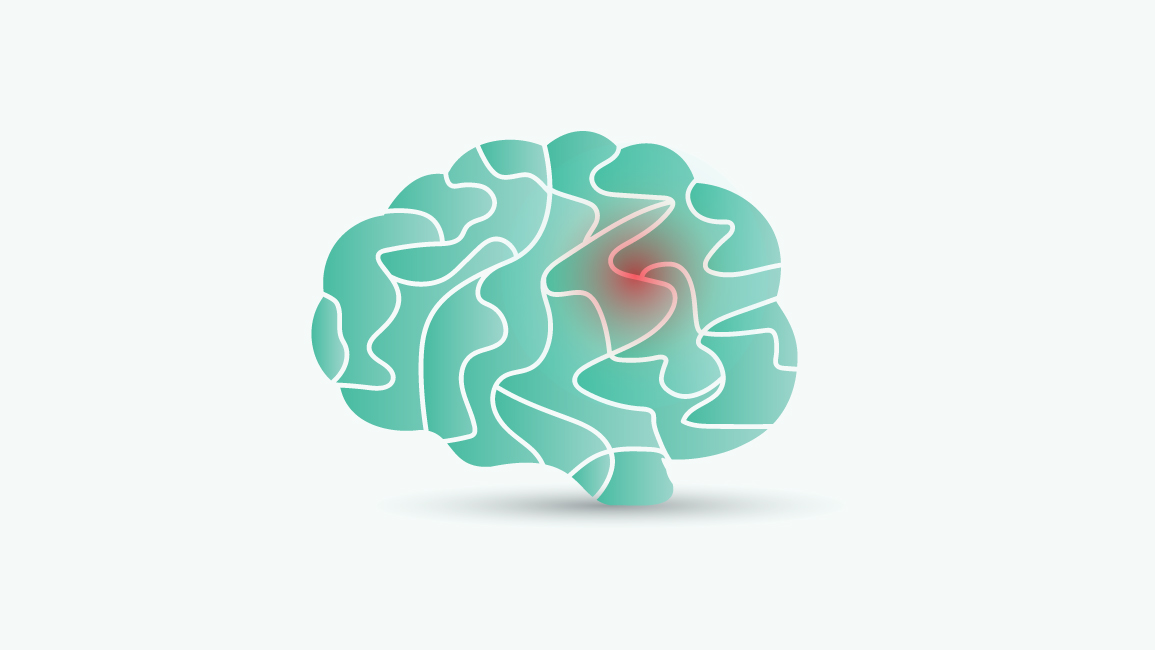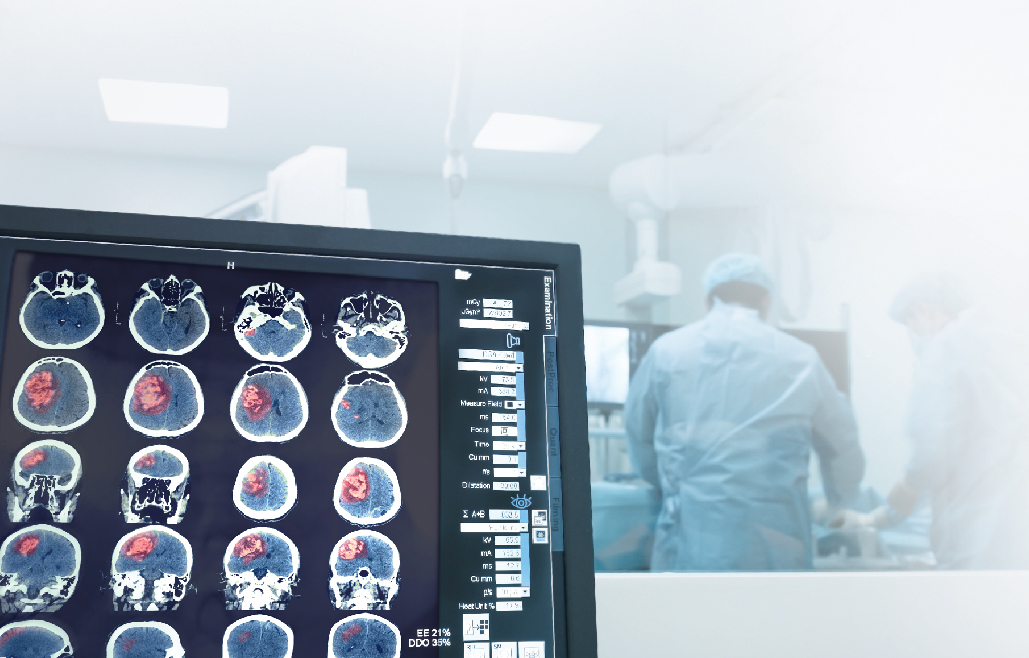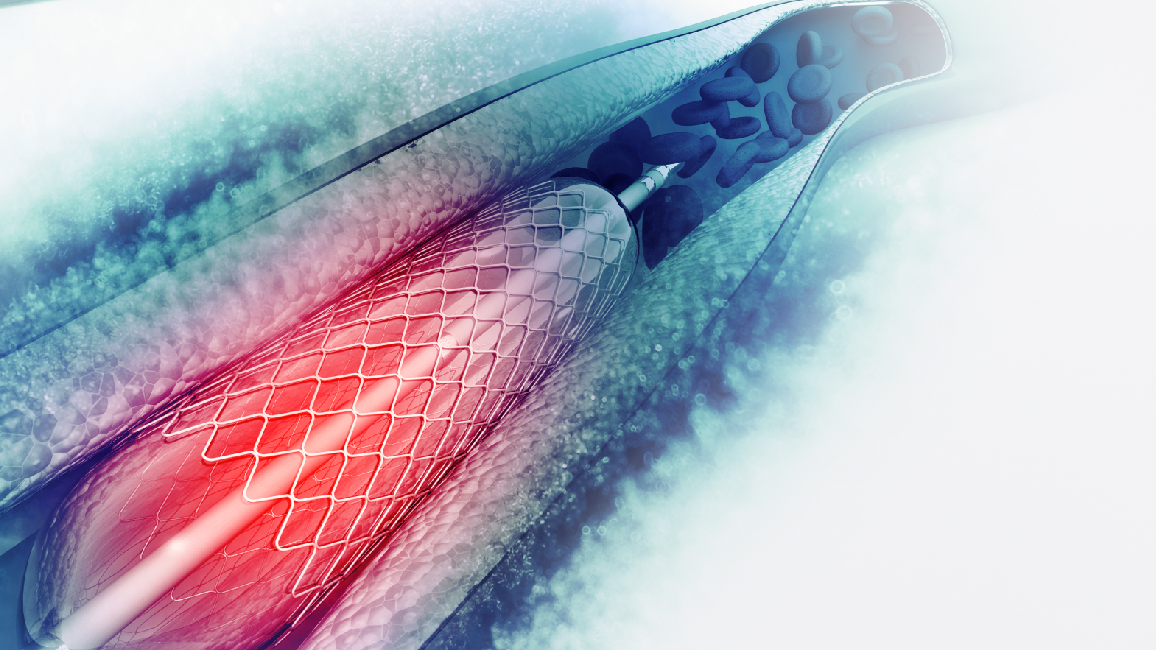Parkinson's disease, caused by degeneration of the nervous system
Center : Neurology Center
Article by : Dr. Chanwit Ankrohwittaya
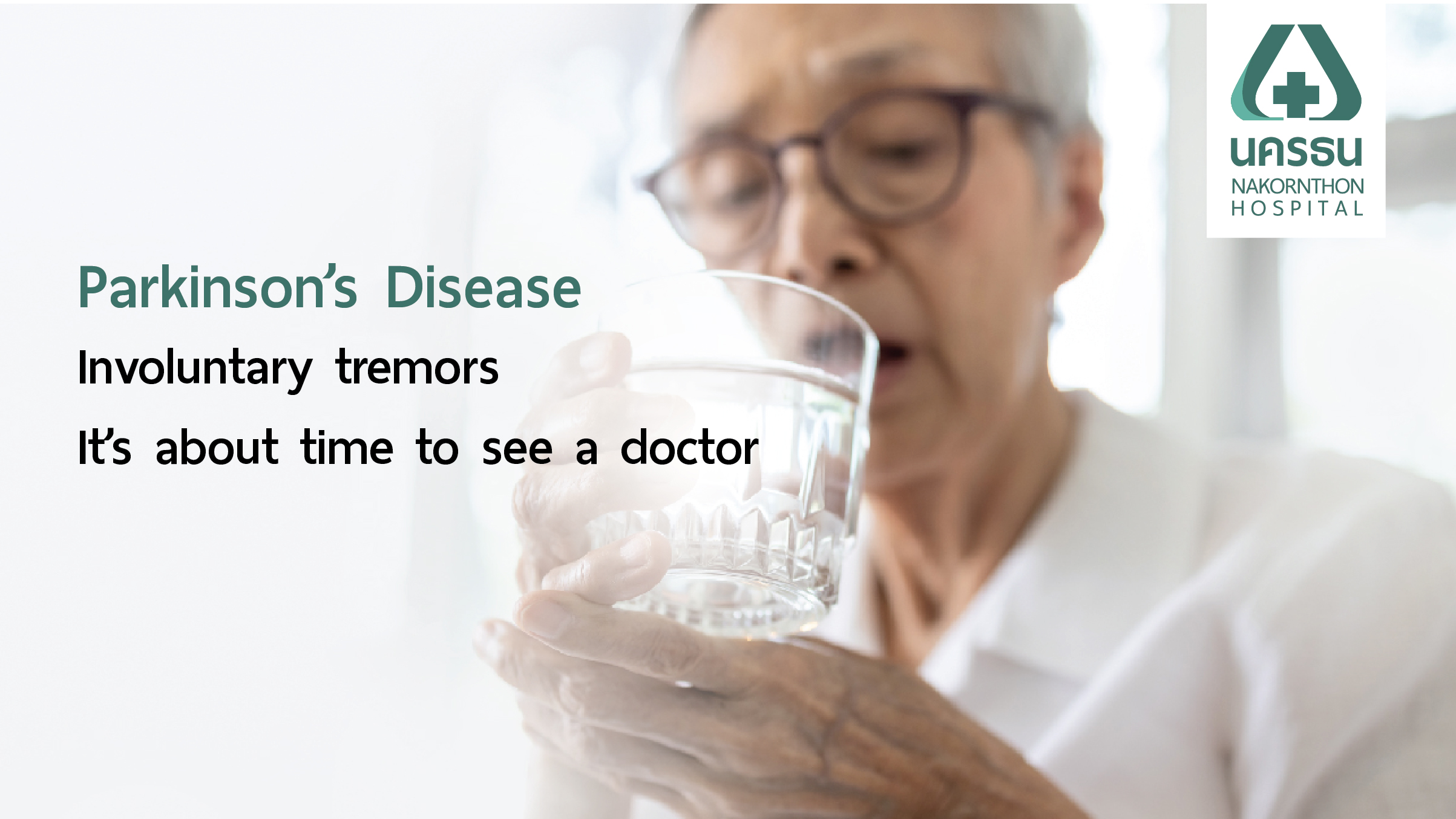
If a family member or elderly people have tremors on one or both sides of their arms and hands, while resting and not doing any activity. Slow and staggering while walking, this may be a sign of “Parkinson's disease” is a disease caused by slow degeneration. of the nervous system and brain Although this disease and cannot be completely cured. But bringing patients to the doctor early is extremely important. Because modern treatments can help patients have a good quality of life and be able to help themselves for a longer time.
Choose to read by topic:
Get to know...Parkinson's disease
Parkinson's Disease (PD) is a degenerative disease of the nervous system and brain. Especially the part that produces substances that control movement and balance. Also known as dopamine, when brain cells deteriorate or are destroyed. The production of dopamine is reduced, thus resulting in movement disorders cause tremors, slow movements, stiffness, difficulty walking and balancing. Parkinson's disease is often found in elderly patients. They are mostly found from the age of 60 years and are found in female patients only slightly more than male patients. People with a family history of Parkinson's disease will be at higher risk of this disease, because it can be genetically inherited.
Symptoms of Parkinson's disease
Each patients have symptoms of Parkinson's that varies. This depends on many factors such as age and duration of disease and complications. The symptoms shown are as follows.
- Tremors in the arms and hands, usually preceded by symptoms on one side. Later, tremors may occur on both sides, but the intensity of the tremors is often not the same. Tremors usually occur during periods of rest and inactivity.
- Symptoms of slow movement such as walking, dressing, and doing various activities and change from being agile to inactive.
- Muscle stiffness often occurs with muscle aches and pains, especially in the arms, legs, and torso.
- Symptoms: abnormal balance, staggering, and falling easily
- Psychiatric symptoms such as depression, anxiety, and anger.
- Short-term memory symptoms are poor in the early stages. Late-stage memory loss
- Bloating, constipation, frequent urination, inability to control urination.
- Can’t taste and smell well
- Lightheadedness when standing up due to low blood pressure
- Some patients will have slurred speech, speak softly, or their voice may disappear from their throat. Some people may have symptoms of speaking rapidly. The speaking volume remains at the same level throughout and there may be saliva flowing out of the corners of the mouth.
Symptom stages of Parkinson's disease
- Level 1: Initial symptoms include slight tremors in walking, standing, and facial expressions. which can still carry out normal daily life
- Level 2: Symptoms begin to spread to the other organ. Until causing tremors on both sides, stiffness, abnormal standing and walking, and a slightly bent body. Daily life remains normal, but some things may be more difficult.
- Level 3: Tremor occurs on both sides. Have abnormal balance symptoms and prone to falling easily.
- Level 4: The patient becomes less able to help themselves. The shaking will be less. But there will be stiffness and moving more slowly than before. It is necessary to have close supervision.
- Level 5: The patient's muscles become more rigid and unable to move at all, become bedridden. Patients head is bent down. Crooked hands and feet, soft voice, no facial expressions, has to be assisted in everything, the patient also experienced hallucinations.
Diagnosing patients with Parkinson's disease
Diagnosing patients with Parkinson's disease will mainly rely on health history inquiry and physical examination. Laboratory tests or magnetic resonance imaging (MRI) of the brain are used to dismiss other diseases with symptoms similar to Parkinson's disease.
Currently, brain function is tested with PET Scan technology to help confirm Parkinson's disease. Other ways is by injecting dopamine to bind with radiation or F-DOPA to see how much of the substance is present. Is it considered as Parkinson's disease? Or at what stage is Parkinson's disease? To be useful in planning treatment correctly.
Parkinson's disease treatment
Although this disease cannot be completely cured, but bringing patients to the doctor early, will help the treatment to control the symptoms and prevent the symptoms from becoming severe. There are many ways to treat Parkinson's disease. The doctor will consider treatment as appropriate for each patient as follows:
- Drug treatment A symptomatic treatment. In the early and middle stages of the disease, it is still mainly treated with drugs. Because Parkinson's disease is a disease characterized by abnormalities in many neurotransmitter systems in the brain, including dopamine, choline, adrenaline, serotonin, and others, current medications will act on various neurotransmitters.
- Deep Brain Stimulation (Deep Brain Stimulation) is a treatment method where electrodes are surgically implanted to stimulate the brain. Used to treat Parkinson's disease patients who have previously been treated with medication but there are more symptoms to the point where drug treatment is not as effective as it should be.
Parkinson's disease is a degenerative disease of the nervous system and brain that causes patients symptoms to slowly worsen. Early diagnosis and receive correct and appropriate treatment will help patients have a good quality of life for a longer period of time. If many of the above abnormal symptoms are found together, consult a doctor immediately.
Online Consultation
Article of Neurology Center


